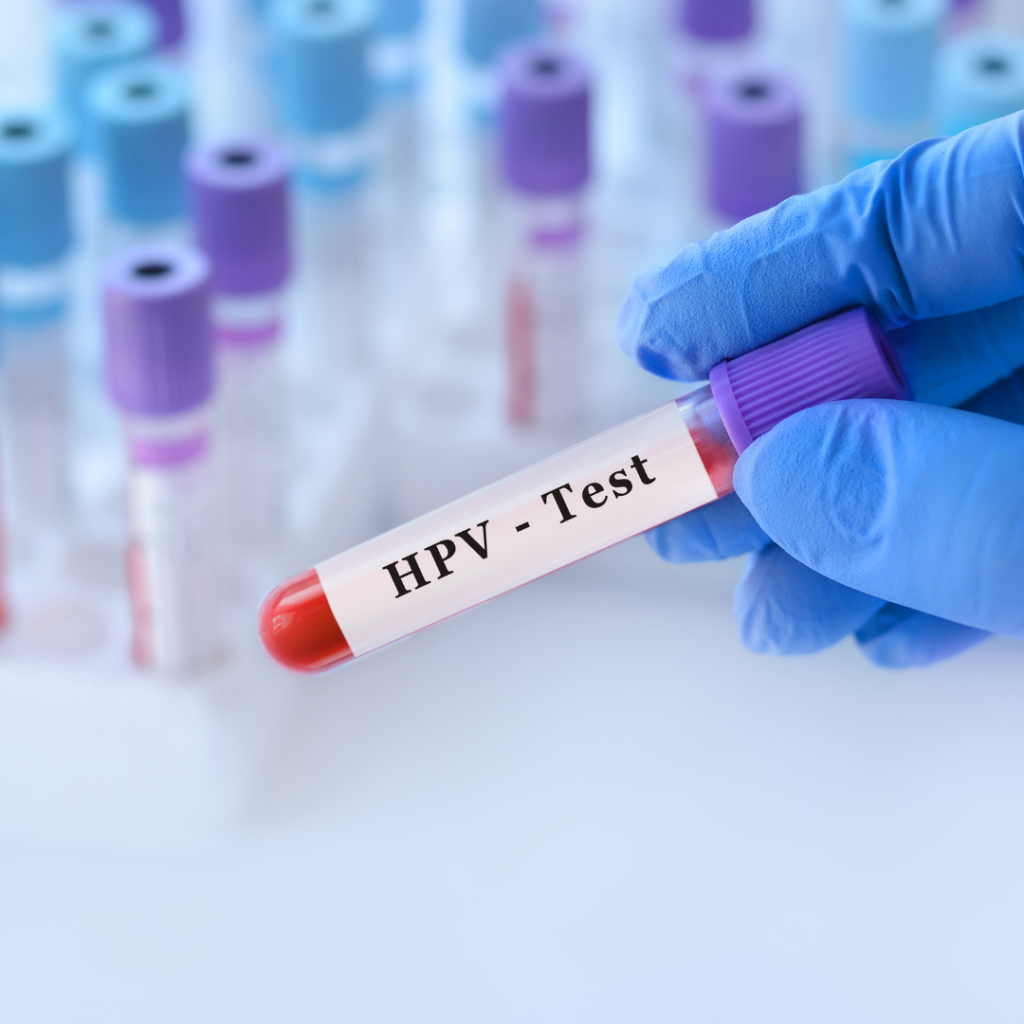HPV Screening

What is HPV?
Human Papillomavirus (HPV) is one of the most common sexually transmitted infections. While many strains of HPV are harmless, some can lead to serious health issues like cervical cancer and other types of cancer. Thankfully, regular HPV screening can help detect the virus early and prevent these complications.
Why is HPV Screening Important?
HPV often shows no symptoms, making it easy to overlook. However, certain high-risk strains of the virus can lead to cervical cancer over time. Regular screening is the most effective way to catch any abnormalities early, ensuring that any potential issues are addressed before they become serious. Early detection can save lives.
Who Should Get an HPV Screening?
- Women aged 21-29: It’s generally recommended to start Pap smears at age 21 and continue every three years if results are normal.
- Women aged 30-65: A Pap smear combined with HPV testing (also called co-testing) is recommended every five years.
- Women over 65: HPV testing may no longer be necessary if you’ve had regular screenings with normal results in the past.
If you’re sexually active and have had multiple partners or have other risk factors, your doctor may suggest more frequent testing.
What to Expect During an HPV Test?
An HPV test is usually done at the same time as your Pap smear. During the test, your healthcare provider will collect a small sample of cells from your cervix. It’s a quick and generally painless process, though some women may experience mild discomfort.
The test checks for high-risk types of HPV that can cause cervical cancer. If your results are normal, you won’t need another test for several years. If abnormal cells are found, your doctor will guide you on the next steps, which could include follow-up tests or treatment.
How Can You Protect Yourself from HPV?
- Vaccination: The HPV vaccine is a safe and effective way to protect yourself from the most dangerous strains of the virus. It’s recommended for both girls and boys starting as early as age 9, but it can be given up to age 45.
- Safe Sex Practices: Using condoms and limiting your number of sexual partners can reduce your risk of contracting HPV.
- Regular Screenings: Even if you’ve been vaccinated, regular HPV screening is crucial. The vaccine doesn’t protect against all strains of the virus, so regular check-ups are still necessary.
HPV Screening Results: What Do They Mean?
- Negative Result: No HPV was detected, and you won’t need another test for a few years.
- Positive Result: If high-risk HPV is detected, don’t panic. Your doctor will likely recommend further tests, like a colposcopy, to examine your cervix more closely. Not all HPV infections lead to cancer, but monitoring is key to staying healthy.
Common Myths About HPV Screening
Myth: “If I have HPV, I will get cancer.”
Fact: Most HPV infections resolve on their own. However, regular screening is important to ensure that any persistent infections are monitored to prevent cancer.Myth: “I don’t need to be tested if I’ve had the HPV vaccine.”
Fact: While the vaccine offers significant protection, it doesn’t cover all HPV types. Regular screening is still essential for long-term health.
How to Schedule Your HPV Screening with My Lady Doc
At My Lady Doc, we prioritize your health and comfort. We understand that talking about HPV can feel overwhelming, but we’re here to make the process as easy as possible. If you’re due for your screening or have questions about HPV, give us a call to schedule your appointment today. Our experienced team is ready to provide personalized, compassionate care.
Key Takeaways:
- HPV is a common virus that can lead to cervical cancer, but regular screening can help prevent this.
- Women aged 21-65 should have regular Pap smears and HPV testing.
- The HPV test is quick and painless, and the results can give you peace of mind.
- Protect yourself with the HPV vaccine, safe sex practices, and regular screenings.
